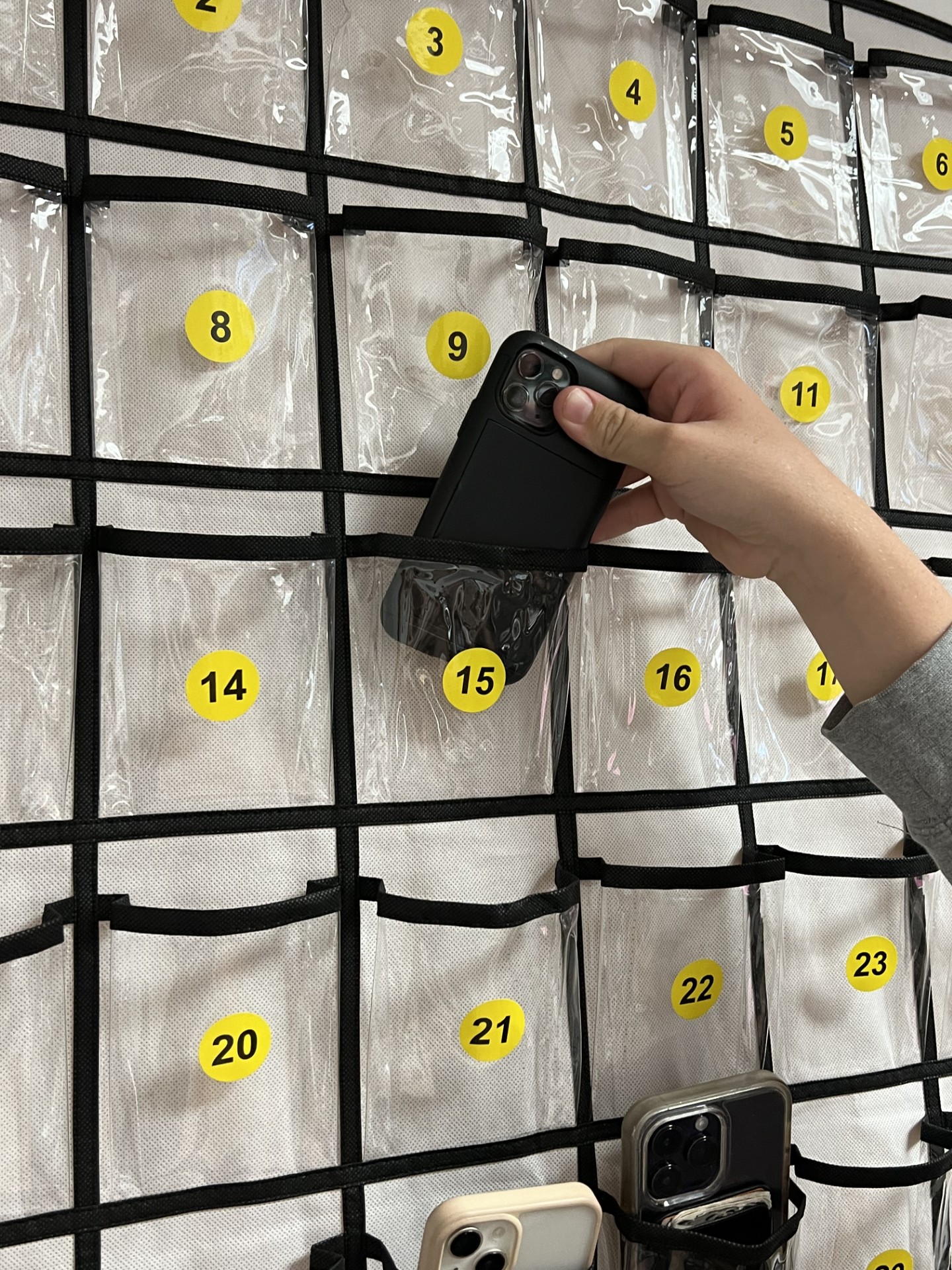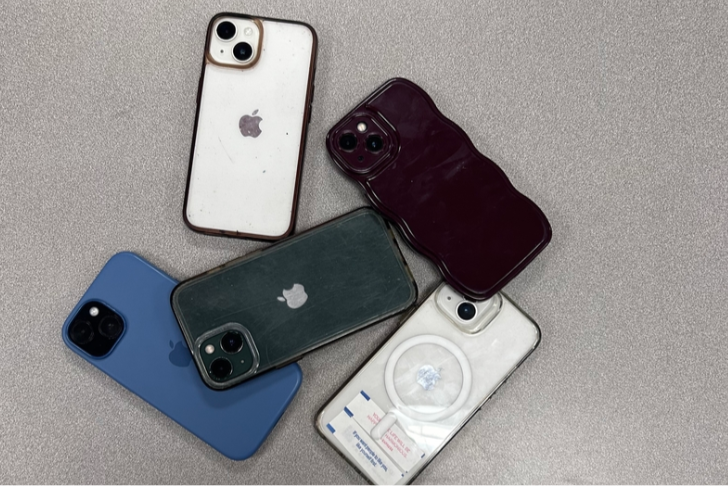In response to a state law requiring schools to limit cell phone use, the District has implemented a traffic light system that dictates when students access to their devices.
After House Bill 250 passed last May, all school districts across Ohio have been formulating new policies. While Granville’s former policy technically satisfied the bill’s conditions, it prompted Principal Scott Hinton to consider what revisions would allow students to learn better.
“I think we do need to rework and come to a clearer expectation of what our cell phone policy needs to be,” said Hinton. The administration developed the system to correspond with whether devices should be out of sight, used for listening to music or supplementing academics.
Hinton believes the policy’s flexibility encourages students to develop the proper restraint around phone use overall.
“We wanted to create a policy [where] we could be more restrictive, perhaps with our younger students in the high school and a little bit less restrictive with our upperclassmen,” Hinton said, “because, at some point in time, you students have to have plans to develop to be able to use it responsibly and know when to put it away.”
In only a decade, the negative effects of smartphones on class engagement have become undeniable. According to Latin teacher Derrick Fisher, who began teaching in 2004, students are increasingly “not paying attention, focusing on other issues, and having a short attention span” since the devices came into the classroom.
“It slowed the class down because I had to explain things numerous times, and a number of the students who struggled with phone use did not perform as well as they could have,” Fisher said.
Student responses to the policy have been mixed. Some see it as reasonable, while others believe it to be heavy-handed. Senior Lani Casto recalls how phones quickly became the focus of the classroom after they first started appearing in seventh grade.
“There were more vocalized restrictions,” Casto said. “I personally didn’t have a device that early, but for my friends, free time meant phone time, even when [we were outside for recess]…you got to be on your phone and teachers weren’t policing it as much…for the most part, the expectation was to have in your locker, but they became a distraction pretty quickly.”
Casto believes that the gradual relaxation of the policy was due to the social importance attached to smartphones.
It’s so difficult to enforce – [there’s] socialized pressure with it, where it’s a piece of private property that we feel like we’re not allowed to remove from somebody’s person…I think for a lot of kids in our generation, it seems like taking away a huge part of who we are because it contains so much information about us that it feels like a violation of privacy to take it away,” Casto said.
On the other hand, sophomore Eliana White thinks the policy is “silly” as students aren’t allowed to use phones during study hall or ACE period when students “aren’t learning anything.”
Whatever the initial opinions may be, Fisher believes that all students will benefit from this transition in the long term.
“Their entire lives they have used phones, I don’t think that they know what it’s like without the phone, being connected at any given moment,” Fisher said. “And I think that they’ll actually enjoy the separation.”








